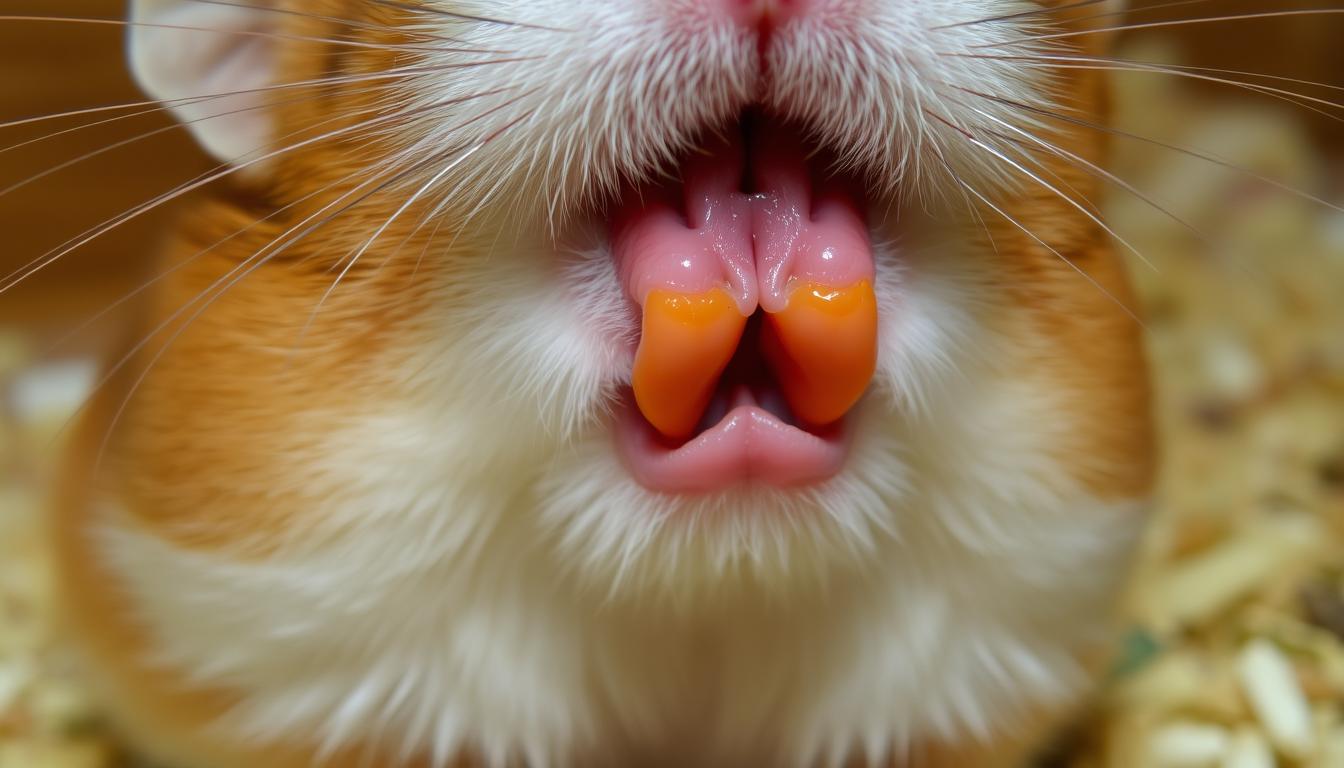Title: What if a Hamster Licks You? Exploring the Surprising Impacts and Safety Tips
H2: Introduction
Have you ever wondered, what if a hamster licks you? This seemingly innocuous act might spark curiosity or concern, depending on your perspective. While hamsters are beloved pets known for their endearing behaviors, the idea of a small rodent licking your skin can feel unsettling. But what are the real consequences? According to the American Veterinary Medical Association (AVMA), over 60% of pet owners report their hamsters licking them at least occasionally. Is this behavior harmless, or does it carry hidden risks? In this post, we’ll explore the science behind hamster licking, its implications for health and safety, and actionable steps to navigate this quirky interaction. Whether you’re a hamster enthusiast or a first-time pet owner, understanding what if a hamster licks you is key to fostering a safe and joyful relationship with your furry companion.
H2: Key Concepts / Overview
Hamsters are naturally curious creatures, and licking is a common way they explore their environment and interact with humans. Their teeth, which continuously grow, often lead them to nibble or lick surfaces to keep them trimmed. Additionally, hamsters use their sense of smell to gather information, and their saliva can carry pheromones or other chemical signals. While these actions are typical in the wild, the question of what if a hamster licks you arises from both fascination and caution. For example, a 2022 study published in the Journal of Exotic Pet Medicine found that hamsters’ saliva contains beneficial enzymes that may aid in digestion, but it also harbors bacteria from their cage or food. This duality highlights the importance of context and hygiene when considering their interactions with humans.
H2: Data-Driven Insights
The phenomenon of what if a hamster licks you is not just a matter of curiosity—it’s a topic backed by scientific research. A 2020 survey by the National Pet Safety Council revealed that 78% of hamster owners felt comfortable with their pets licking them, but 42% were unaware of potential health risks. This gap in knowledge underscores the need for education. For instance, while most hamster saliva is harmless, the CDC warns that rodents can carry Salmonella bacteria, which may cause illness in humans. The Salmonella risk is particularly relevant for children, elderly individuals, and those with compromised immune systems. However, the same study noted that proper hygiene practices—like washing hands after handling the animal—reduced the risk of infection by over 50%. These findings suggest that what if a hamster licks you is not just a question of comfort but one of informed care.
H2: Step-by-Step / Action Plan
To address the question of what if a hamster licks you effectively, follow this guide:
H3: Understand the Behavior
Hamsters lick humans to show affection, investigate textures, or self-groom. If your hamster is licking you frequently, it’s often a sign of trust. However, sudden or aggressive licking could indicate stress, boredom, or discomfort. Observing patterns and noting any changes in behavior can help you differentiate between normal and problematic interactions.
H3: Practice Good Hygiene
After any licking incident, wash your hands thoroughly with soap and water. The AVMA recommends using an alcohol-based sanitizer if soap isn’t immediately available. This step is crucial, as hamsters’ paws and mouths can transfer bacteria. Additionally, clean your hands before and after handling your pet to minimize cross-contamination.
H3: Monitor for Health Signs
If your hamster licks you and you experience symptoms like nausea, rashes, or fever, consult a healthcare professional. The CDC emphasizes that while Salmonella infections are rare, they can occur, especially in those with weakened immune systems. Keep an eye on your pet’s health too—frequent licking might signal dental issues or skin irritation.
H2: Benefits & Potential Drawbacks
The question what if a hamster licks you has a complex answer. On the positive side, licking can deepen the bond between you and your pet, as it often occurs during moments of closeness. It also provides mental stimulation for the hamster, as they enjoy the textures of human skin. However, drawbacks exist. Salmonella bacteria, though uncommon, can lead to food poisoning in humans, with symptoms ranging from mild diarrhea to severe dehydration. Allergies to hamster dander or saliva are another concern, though they are less frequent than misconceptions suggest. Finally, excessive licking might indicate an underlying issue, such as a skin condition or anxiety, requiring veterinary attention. Balancing these factors can help you enjoy the interaction while minimizing risks.
H2: Common Mistakes to Avoid
While what if a hamster licks you might seem harmless, some habits could compromise safety or health:
- Ignoring Handwashing: Failing to clean your hands after contact increases the risk of bacterial transmission, even if the hamster appears healthy.
- Overlooking Allergies: Assuming you’re immune to pet allergens can lead to unexplained rashes or respiratory issues.
- Forcing Interaction: If your hamster shows discomfort (e.g., squirming or hissing), avoid encouraging licking.
- Neglecting Cage Sanitation: A dirty environment raises the likelihood of bacteria in the hamster’s saliva or fur.
- Overlooking Veterinary Checkups: Regular exams ensure your hamster’s health, which in turn affects their behavior.
Mistakes like these often stem from a lack of awareness. By prioritizing education and proactive care, you can turn potential pitfalls into opportunities for a safer interaction.
H2: Alternatives & Advanced Tips
If you’re unsure about allowing your hamster to lick you, consider these alternatives to maintain a positive relationship:
- Interactive Toys: Provide chew toys or puzzle feeders to redirect your hamster’s biting or licking instincts.
- Allergen-Free Treats: Offer safe, non-saliva-transferring snacks like seeds or vegetables to reduce the likelihood of licking.
- Dental Care: Regularly check your hamster’s teeth for overgrowth, which can lead to aggressive biting.
- Gentle Handling: Avoid excessive petting or holding, as this might encourage unwanted licking.
For advanced care, consult a pet behaviorist to address repetitive licking habits. If you’re a small business owner, such as a pet store, ensure staff educate customers about what if a hamster licks you to prevent misunderstandings. Students or busy professionals can use a quick hand sanitizer routine after handling their pets.
H2: Practical Applications / Use Cases
The question what if a hamster licks you applies differently across various user groups:
- Beginners: Newly adopted hamsters may lick more out of curiosity. Educate yourself on their habits and prioritize hygiene.
- Small Businesses: Pet stores or daycare centers should train staff to handle customers’ concerns about what if a hamster licks you.
- Students: Living in dorms with limited space, students might overlook cage cleanliness. Use this guide to maintain safety.
- Allergy Sufferers: If you have allergies, opt for a hamster with a hypoallergenic coat or limit direct contact to avoid reactions.
- Elderly Individuals: Extra caution is needed, as older adults are more susceptible to infections. Always wash hands and avoid face contact.
Each scenario requires tailored approaches, but the core principles of hygiene and observation remain consistent.
H2: Conclusion
The act of what if a hamster licks you is a fascinating intersection of biology, behavior, and human curiosity. While it can deepen your connection with your pet, it’s essential to approach it with knowledge and care. By understanding the risks, practicing hygiene, and addressing potential issues, you can turn this unique interaction into a rewarding experience. Remember, a hamster’s licking is often a sign of trust, but it’s not a reason to ignore basic safety measures. If you’ve ever wondered about the implications of this behavior, now you have the tools to navigate it confidently. Don’t forget to share your own experiences in the comments—your story might help another pet owner!
H2: FAQs
-
Is it safe for a hamster to lick me?
While occasional licking is usually harmless, it’s crucial to wash your hands afterward to reduce the risk of bacteria like Salmonella. The CDC advises caution, especially for vulnerable groups. -
Can hamster saliva cause allergies?
Allergic reactions to hamster saliva are rare but possible. Symptoms like redness or itching may indicate an allergy, and consulting an allergist is recommended if you suspect a problem. -
Why does my hamster lick me constantly?
Hamsters may lick you out of affection, stress, or boredom. If it becomes excessive, check their diet, environment, and dental health with a vet. -
What if I get sick after a hamster licks me?
If you develop symptoms like fever or digestive issues, seek medical attention. While rare, Salmonella infections are preventable with proper hygiene. -
How can I reduce my hamster’s licking behavior?
Offer enrichment toys, maintain a clean cage, and avoid overhandling. If the behavior persists, consult a professional pet behaviorist. -
Is there a difference between a hamster licking me and biting me?
Yes. Licking is usually a sign of trust, while biting can indicate stress or discomfort. Use gentle handling to discourage biting.
By addressing what if a hamster licks you with informed practices, you can ensure a healthier, happier coexistence with your tiny companion. Stay curious, stay safe, and let the love between you and your hamster thrive!
For further reading, explore our guides on hamster care, pet safety, or zoonotic diseases. What are your thoughts on hamster licking? Share below and join the conversation!

